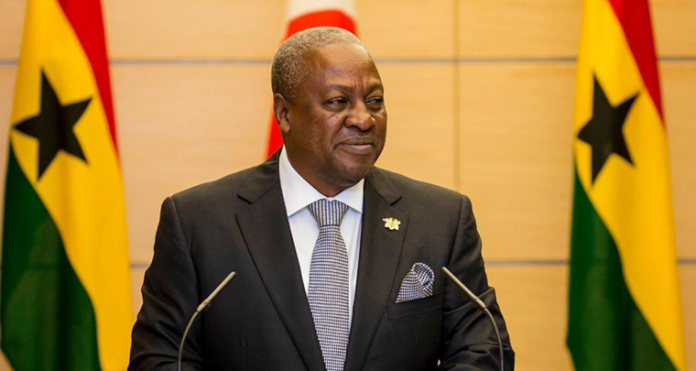By Justice OFFEI Jr
Ghana’s financial sector has undergone significant turbulence over the past six years, marked by the controversial collapse of over 420 financial institutions under the Bank of Ghana’s (BoG) clean-up exercise. While the stated aim was to strengthen the financial sector, the outcomes left a trail of destruction: over a million depositors unable to access their funds, thousand workers laid off, and a ripple effect on the economy.
iWatch Africa investigation into the number of direct jobs lost as a result of the Bank of Ghana (BoG) clean-up of the banking and specialized deposit-taking and non-banking financial institutions sectors has revealed that over 6000 people have directly lost their jobs since 2017.
Prior to this article, I published articles on this topic with the following headlines: The BoG Financial Sector Clean-Up: An Economic Bubble Ready to Burst and Amoabeng’s UT Bank Should Have Been Given a Bailout: The ‘Too Big to Fail’ Local Banks
In this era of high unemployment and economic hardship, the newly elected President of Ghana, John Dramani Mahama, has announced a groundbreaking policy to reinstate the licenses of banks that were unfairly collapsed. This initiative has the potential to not only restore confidence in Ghana’s financial sector but also create significant employment opportunities, providing relief to the expectant youth and the government alike.
A path to economic recovery
President Mahama’s decision to revisit the fate of collapsed banks is rooted in the broader objective of addressing Ghana’s economic challenges. Restoring these banks could:
- Create immediate employment opportunities
Many of the collapsed banks had extensive branch networks across all regions of Ghana, employing thousands of workers in various roles. Reinstating these banks would mean reopening these branches, which would generate jobs for unemployed youth and professionals with experience in banking, finance, and customer service. - Restore confidence in Ghana’s financial sector
The collapse of financial institutions eroded public trust in the banking system. Reinstating the banks signals a commitment to fairness and stability, encouraging depositors and investors to return to the financial system. - Revitalize regional economies
Banks play a crucial role in facilitating economic activity, especially in rural and semi-urban areas. By reopening branches in these regions, the reinstated banks would provide much-needed credit to small businesses and individuals, boosting local economies. - Alleviate pressure on government
In a country grappling with high youth unemployment, this policy could reduce the burden on the government to create jobs directly, allowing resources to be channeled into other critical areas like healthcare, education, and infrastructure.
A strategic framework for success
While the initiative is promising, its success will depend on a well-thought-out and transparent process. Key steps include:
- Objective reassessment of collapsed banks
The government must establish an independent committee to review the circumstances under which each bank was closed. This committee should focus on ensuring that banks reinstated are those that were solvent but collapsed due to regulatory lapses or unjustified decisions. - Phased implementation
The reinstatement process should be phased, starting with banks that had the largest regional networks and significant customer bases. This approach ensures that the benefits of reopening are quickly felt across the country. - Capital injection and governance support
Reinstated banks may require initial capital injections to resume operations effectively. Additionally, the government should prioritize governance reforms to ensure that these institutions operate efficiently and sustainably. - Engagement with stakeholders
A transparent dialogue with former employees, depositors, and local communities is essential to rebuild trust. Policymakers must also work closely with the Bank of Ghana to align on regulatory requirements for the reinstated banks.
Potential challenges
This bold initiative is not without its challenges. Skeptics might argue that reopening collapsed banks could strain Ghana’s already fragile economy. However, the long-term benefits of job creation, economic revitalization, and restored confidence outweigh the short-term costs. Additionally, the government must ensure that the reinstated banks adopt stronger corporate governance practices to avoid the mistakes that led to their collapse in the first place.
The bigger picture
President Mahama’s decision reflects a broader vision of justice and economic inclusion. At its core, this policy addresses the critical issue of unemployment, particularly among Ghana’s youth, who constitute a significant portion of the population. With over 50percent of Ghana’s youth unemployed or underemployed, bold interventions like this are essential. By restoring banks and creating jobs, the government can reduce social unrest, increase consumer spending, and catalyze broader economic recovery.
In summary
President John Dramani Mahama’s initiative to reinstate unfairly collapsed banks is a testament to his commitment to fairness and economic transformation. In a country where financial distress and unemployment are at critical levels, this policy offers hope to millions.
By creating jobs, restoring trust in the financial system, and revitalizing regional economies, this initiative could become a cornerstone of his administration’s efforts to steer Ghana toward a more inclusive and prosperous future. With strategic execution and stakeholder collaboration, the reinstatement of banks has the potential to not only address immediate economic challenges but also lay the foundation for sustainable growth in the years ahead.
>>>the writer is a Policy Analyst & Entrepreneur










